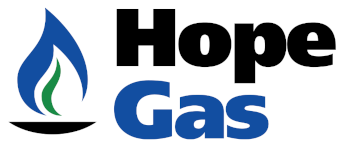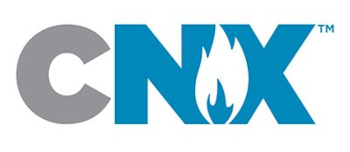This week a friend of mine called. He was home recuperating from having a cancerous prostate removed. Fortunately, thanks to his wife insisting he have an annual physical, his cancer was discovered early. Like breast cancer, prostate cancer is more prevalent than realized. My brother had it and survived. We lost our friend, Al to it earlier this year. My friend’s prognosis is excellent.
Most people fear hearing, “You have cancer.” Cancer still kills a lot of people every year. We all have things we fear. At the Virginia Manufacturers’ Women in Manufacturing Leadership Conference recently, “Little Debbie”, the face on Little Debbie snack cakes, Debbie Mckee-Fowler Chairman of the Board for Mckee Foods Corporation, did the opening keynote. She admitted her two greatest fears were firing someone and public speaking. As a leader she has done both. Public speaking is usually at or near the top of most lists of things people fear. Nostos Psychotherapy LLC compiled a list of the Top 10 Fears People Have based on search engine keyword research. They are;
1) Fear of Flying
2) Fear of Public Speaking
3) Fear of Heights
4) Fear of the Dark
5) Fear of Intimacy
6) Fear of Death
7) Fear of Failure
8) Fear of Rejection
9) Fear of Spiders
10) Fear of Commitment
You probably have a different list. I feared flying until I started doing it frequently. I love public speaking. I’ve been speaking since “show and tell” in grade school. Speaking is a large part of how I earn a living. “Snakes” isn’t on the list. That is mine and Lynnda’s greatest fear. I used to fear rejection. In high school I had very few dates because I was afraid to ask. In college, I asked more and experienced rejection before founding dating success that ultimately led me to Lynnda 48 years ago.
High on my list is “Fear of the dark and cold because the electricity is off.” I’m concerned about Lynnda and other family members especially the infants. When it got cold last Christmas, we had friends in Tennessee who were in the dark and cold when the electric grid failed. In the 2021 Texas freeze, the power grid failed leaving people without electricity for days resulting in 158 people dead from hypothermia. Another 88 people died of other storm related causes. There is reason to fear the dark and cold.
Replacing natural gas for heating and cooking with electricity increases power demand, electric vehicles require electricity, data centers for computing and the internet require large amounts of electricity. Schools and businesses use more electricity than they did 20 years ago. Paper and books are being replaced with computers and electronic data storage. We need more electricity. The math is easy.
Shutting down baseload coal and nuclear power plants as is happening now takes electricity off the grid. Intermittent power sources like wind and solar can’t replace baseload coal, nuclear and natural gas. Batteries don’t create power, they store it. Unfortunately, most of the critical materials we need for
batteries come from or are owned by China. Current and proposed U.S. environmental regulations make building additional dependable baseload power difficult.
The way to prevent this catastrophe is to educate people. The USA has the energy and technology to keep people’s lights and heat on 24/7/365. As a professional engineer with an energy background I have a moral and ethical responsibility to tell the truth and educate people about energy. I have a responsibility to protect my family.
I’m not a psychotherapist. I can’t help you with most of your fears. Sometimes we need to do the thing we fear. Public speaking is an important skill in business and in our personal lives. We are all capable of speaking in front of small groups like making announcements in church or presenting an idea or point of view to people.
Several years ago, I taught a leadership course as an adjunct professor at a community college. My students needed to be able speak comfortably in front of a group. Initially they stood in front of the class hands in their pockets looking at the floor. I told them to, “Spend 5 minutes just telling the class what you did over the weekend.” They were great! By the end of the semester they were comfortable in front of a group and have done well in industry since graduation. Here are some practices professional speakers use. They can help you reduce your fear and be a more confident effective presenter.
IT’S ALL ABOUT THE AUDIENCE, not you, your organization, product, message, idea or your nerves. The audience listens to station WIII-FM (What is in it For Me). When you focus on the audience and their needs you take the focus off you.
- Be clear on when, where, and what the group expects from you.
- Understand the audience (size & makeup)
- Be Prepared Ask for equipment, room set-up, microphones, projection, screens, etc. Use a microphone if available. Practice.
- Appearance. Dress one level above your audience.
- Talk so you can be heard. Stand Tall.
- Look at the audience, not your slides.
- Open Strong Consider a story, startling fact, or a question.
- Slides ARE NOT YOUR NOTES. They should enhance your speech. Make sure the audience can see and read them, especially the back row.
- Close Strong. It’s not what you present. It is what they remember. They won’t always remember what you say. They will always remember how you made them feel.
Author Marianne Williamson said, Our deepest fear is that we are powerful beyond measure. It is our light, not our darkness that most frightens us. We ask ourselves, “Who am I to be brilliant, gorgeous, talented, fabulous?” Actually, who are you not to be? You are a child of God. Your playing small does not serve the world.
Don’t allow your fears to keep your light from shining. The world needs you!










